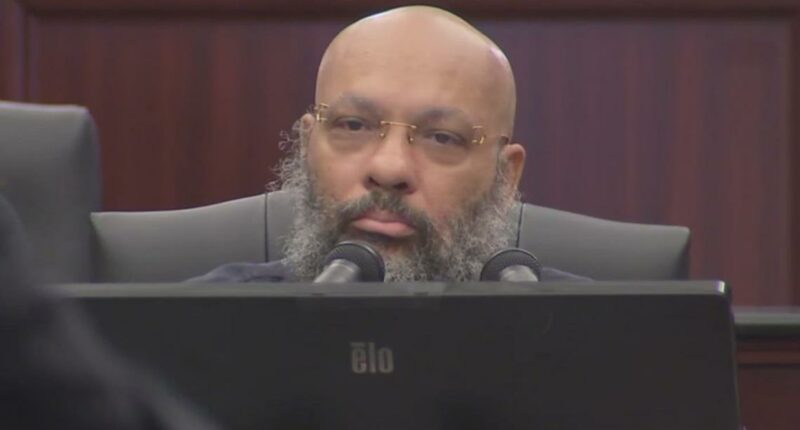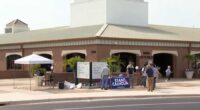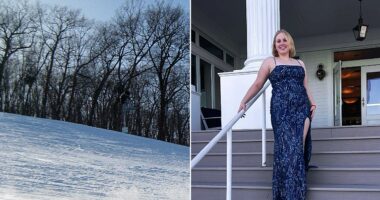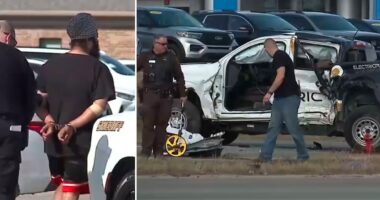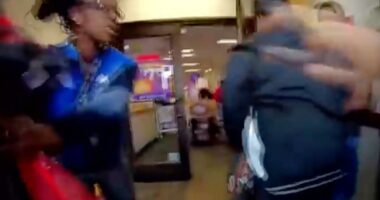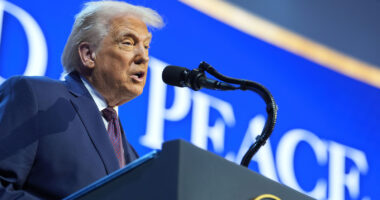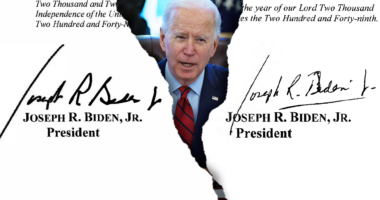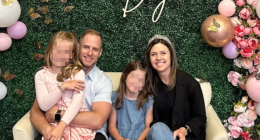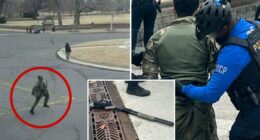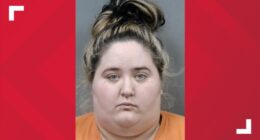Share this @internewscast.com
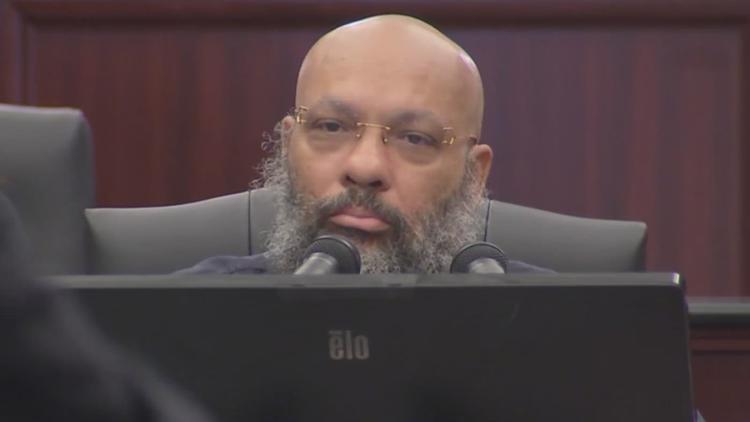
The defense team frequently challenged the credibility of Ksoo’s father. In their closing statement, the prosecution maintained they could secure a conviction with or without his testimony.
JACKSONVILLE, Fla. — On Wednesday, the prosecution presented their closing arguments in the trial of Hakeem Robinson, also known as the rapper Ksoo, alongside his co-defendant, Leroy Whitaker, known as ATK Scotty.
The duo is being tried for the murder of Charles McCormick, who was fatally shot at a Merrill Road shopping center in 2020. Prosecutors allege that Ksoo carried out the shooting, while Whitaker was nearby in a getaway vehicle, armed and ready to assist.
Whitaker is also charged for a violent home invasion after the crime, when prosecutors say he was running from police.
Defense attorneys for both accused men have urged the jury to view the state’s main witnesses with skepticism. The state had negotiated plea agreements with two key accomplices: Abdul Robinson Sr., Ksoo’s father, and Dominique Barner.
Both individuals have admitted guilt in the murder of another Jacksonville resident. They testified that Robinson Sr. hired Barner for a hit that resulted in the accidental shooting of Damon Rothermel instead.
The two are testifying in exchange for shortened sentences in both murder cases.
Robinson Sr. testified in court that he could identify his son in footage of the crime. He also claimed to have collected Whitaker and Barner from a safe house post-crime and destroyed the clothing they wore.
Defense attorneys argued that both Robinson Sr. and Barner are motivated only by the promise of getting out of jail, and are both violent and untrustworthy.
On the stand, Barner testified he has lied to police and during testimony in the past, including under oath. When asked by Ksoo’s defense attorney Chris DeCoste if his plea deal would hold up if he did not identify the shooter as his son, Robinson Sr. answered that it would not.
However, during his closing argument, Assistant State Attorney Joel Cooper argued that even if the jury agrees with these points, it doesn’t matter.
Cooper noted that he was not asking jurors to “like” Robinson Sr. when considering his testimony; and he pointed to Robinson Sr.’s testimony as evidence. But he told the jury that the state does not “need” Robinson Sr.’s testimony to prove the defendants are guilty.
He instead pointed to DNA evidence, cell phone records, social media posts, fingerprints and evidence of motive.
Assistant State Attorney Alan Mizrahi later said in his rebuttal to Whitaker’s closing that the case will hold up without Barner.
He noted, however, that Barner would be foolish to lie, saying that he could still be sentenced to life in prison after the case. Finding out Barner lied would result in a much harsher sentence, Mizrahi said.
